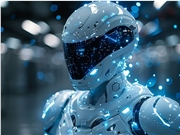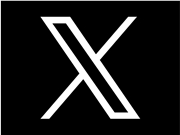Recently, Sam Altman, CEO of OpenAI, announced his departure from the company's internal safety committee, which was established in May to oversee critical safety and security decisions related to the development and deployment of OpenAI's artificial intelligence models. Altman's decision has garnered widespread attention, as he aims to hand over this role to third-party experts to enhance transparency, collaboration, and security.

With Altman's departure, the safety committee will transition into an "independent oversight board" focused on safety and security issues. The new chair of the committee is Zico Kolter, director of the machine learning department at Carnegie Mellon University's School of Computer Science. He succeeds Brett Taylor, who has also left the committee. Other members include Adam D'Angelo, co-founder and CEO of Quora, retired U.S. Army General Paul Nakasone, and former Sony Corporation executive vice president and general counsel Nicole Ragam.
Under Kolter's leadership, the committee will be responsible for reviewing the safety and appropriateness standards of AI for its latest large-scale language model—OpenAI o1. OpenAI o1 introduces advanced reasoning capabilities, claiming to outperform human doctors in physics, chemistry, biology, and excel in mathematics and coding.
OpenAI has also outlined the committee's future mission, including establishing independent AI safety and security governance, enhancing safety measures, promoting transparency in OpenAI's work, collaborating with external organizations, and unifying the company's safety framework for model development and monitoring. The company states: "We are committed to continuously improving the way we release highly capable and secure models, and the Safety and Security Committee will play a crucial role in shaping OpenAI's future."
However, Altman's management style has sparked controversy, especially in the context of his brief departure and rapid return to OpenAI at the end of last year. His relationship with Tesla's Elon Musk, a founding director of OpenAI, has also been tense. Questions about the safety of OpenAI's technology have frequently arisen, including whether the company uses illegal non-disclosure agreements and requires employees to report contacts with regulatory agencies.
The impact of Altman's departure on AI governance remains unclear. Some suggest that this may indicate OpenAI's recognition of the importance of neutrality in AI governance and a willingness to be more open in managing AI safety and risks.
Key Points:
🌐 Altman exits OpenAI's safety committee to promote a more independent oversight mechanism.
🔍 New chair Zico Kolter will lead the committee in continuing to evaluate the safety of OpenAI's new models.
🤝 OpenAI plans to strengthen cooperation with external organizations, enhancing transparency and safety measures.










